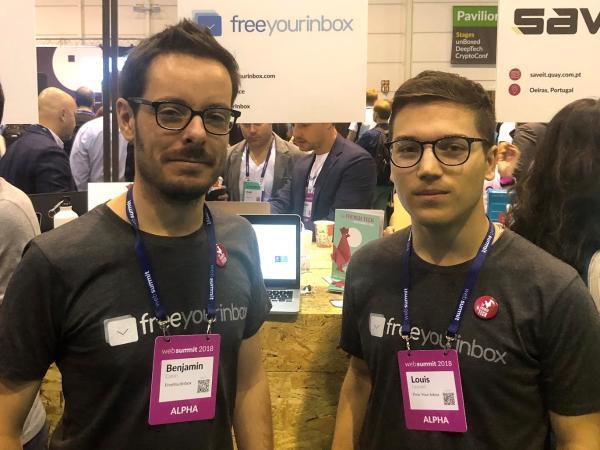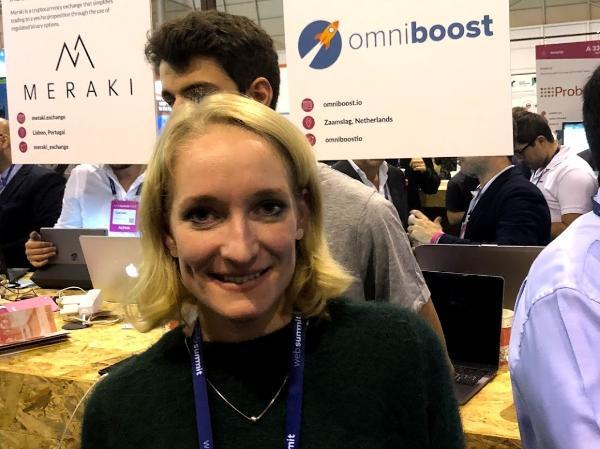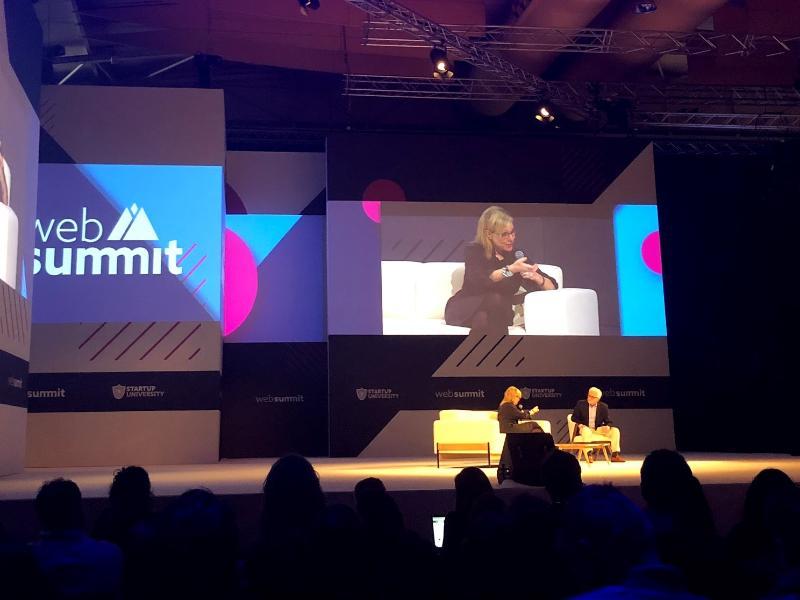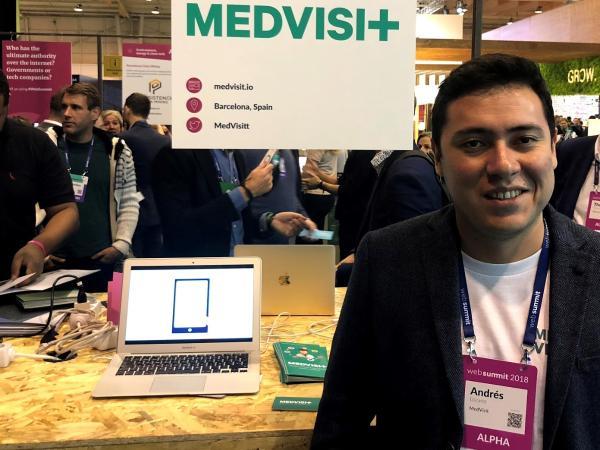At the Lisbon Web Summit, start-ups say attracting customers and talent are the biggest challenges.
Founders of startups have been coming to the Web Summit since its inception in 2009. With over 75,000 attendees from all areas of the online world, the three-day conference is a great way to network, share knowledge and discuss mutual opportunities.
“I wanted to have the experience inside startups and see how mobile applications are set up,” says Luliana Tatianina, a technical writer attending this year’s summit in Lisbon.
This sentiment for learning and making connections was shared by many at the summit, particularly people involved with startups.

Benjamin Caron, Chief Executive, and Louis Grasset, Front-end developer, FreeYourInbox
Setting up a startup is no small undertaking. There is an incredible diversity of challenges, each often requiring unique solutions.
“Finding users has been a challenge for us,” says Benjamin Caron, the chief executive of FreeYourInbox, a predictive email filtering startup based in Paris. “In France, it can be difficult to find users. You need to prove what you do. In the US market, it can be easier to bet on an early stage startup.”
US users also may be more willing to accept software as a service (SaaS). “There are more SaaS products in the US than in France,” says Caron, suggesting that people across the Atlantic have become more used to cloud-based subscription services.
The hunt for customers
Niddia Paauwe, the creative strategist for Omniboost, a Dutch startup working on financial data integration, agrees. “Growing our customer base is the challenge,” she says.

Niddia Paauwe, Creative Strategist, Omniboost
“In Holland it is positive,” she explains, because her company knows this culture well, “but other countries are different. Understanding cultures can be difficult. People need to be on the ground in the host country to know the culture and processes.”
In an increasingly saturated technology scene, conveying the nature of a product can be difficult also, particularly for a niche proposition.
“Finding investment is difficult for very different solutions that are hard to understand,” says Frantisek Rouca, the head of Storming Force, a secure email service based in Prague. “People ask, ‘Who is the competition?’ If this isn’t answered, investors might think there is no demand and won’t see the potential.”

Debbie Millman, CEO, Design Matters Media, speaking with Eric Schurenberg, CEO & Editor-in-Chief, Inc and Fast Company
This raises the importance of branding for startups. “Branding is deliberate differentiation,” says Debbie Millman, host of the Design Matters podcast. “You determine what your product is and how it will be different from anyone else’s.”
“Most organisations, when they start out, aren’t thinking about the future,” she adds. “They are just trying to make something successful as quickly as possible. We need to help startups plan a roadmap for growth. Most don’t think about things like brand architecture or product development.”
Great teams and great leaders
“You need to set the bar high, then higher again,” says Alejandro Artacho of Spotahome, an established startup in Spain specialising in medium to long-term city rentals. “You need great teams, with product leaders and technology leaders, to think 10 years from now.”
“We should encourage everyone to hire people smarter than themselves,” he adds. “Never hire too fast. Give time to hiring, as it pays off.”
If you’re the smartest guy in the room, you’re in the wrong room.
The problem of finding talent was echoed by others. “Across Europe there is a lack of development talent,” says Rouca, adding that this also is a global problem.

Andres Lozano, Chief Operating Officer, MedVisit
Another common struggle shared by startups is the search for investors.
“Being an international solution is attractive for investors here,” says Andres Lozano, chief operating officer of MedVisit, a startup from Barcelona connecting travellers with local doctors.
“The challenge is finding the right partner. We need smart capital for quality services and access to [the right] systems.”
For more information about how the Bank and the European Investment Fund support startups in Europe, see http://accesstofinance.eu. Also see our involvement at the Web Summit.
